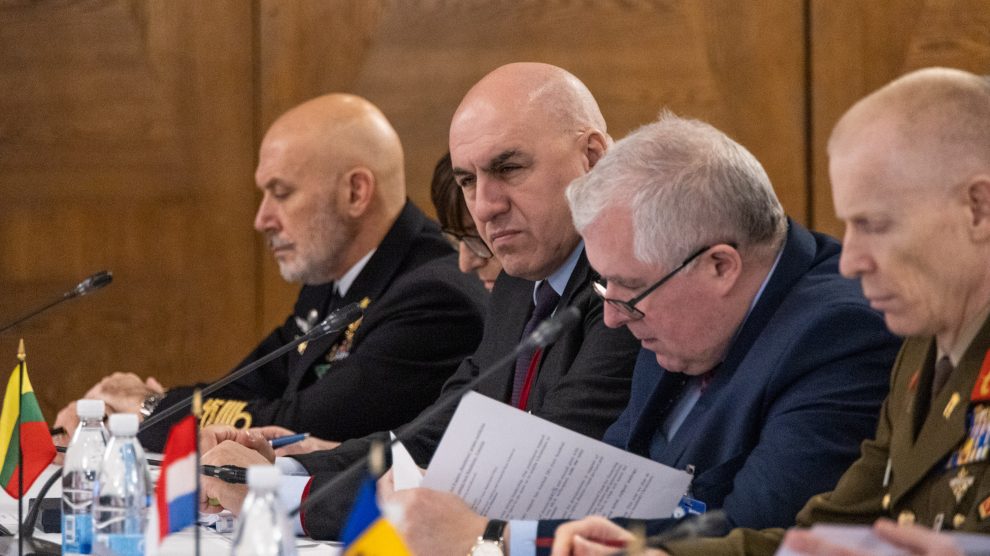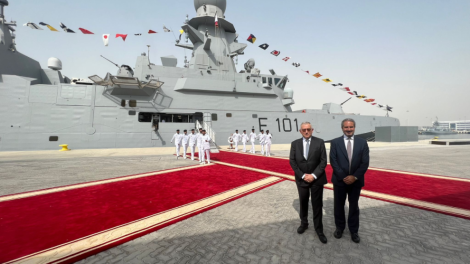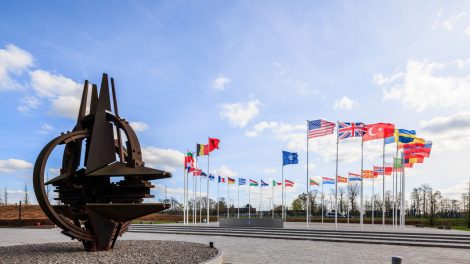The Ramstein talks. On Friday, representatives from nearly 50 countries supporting Ukraine – the so-called Ukraine Defence Contact Group – met at the Ramstein Air Base in Germany to discuss the evolution of the Russian war in Ukraine, how to support the latter’s resistance, and how to go about ending hostilities.
- “Like most wars, this is likely to end at the negotiating table,” said NATO’s Secretary-General Jens Stoltenberg said, “but what happens in negotiations is directly linked to what happens on the battlefield, so we need to deliver more weapons to Ukraine now.”
- Allies are yet to agree on the details of the next round of military hardware shipments. Kyiv has signalled it needs armoured vehicles and tanks, but some allies are still backpedalling on the organisation.
Italy’s contribution. Representing Italy was Defence Minister Guido Crosetto. “We expect the war to escalate in the coming weeks with an exponential increase in land attacks, building upon the missile attacks carried out by Russia in the last period,” he stated in an official note, recalling that the Russians have trained over 300,000 new recruits.
- “We must move from words to deeds as quickly as possible,” he stressed, explaining that each nation will contribute by providing military equipment (anti-missile batteries and land vehicles) to help the Ukrainian defence forces cope with the likely-worsening conflict.
- That was likely directed to Germany, who is resisting the allies’ efforts to send over tanks for fear of the Kremlin perceiving it as a Berlin-led escalation of the conflict.
Ongoing support. Minister Crosetto reiterated that Italy will continue to play its part, and he confirmed as much in all the various meetings he held on the sidelines of the main event – namely with NATO Secretary General Jens Stoltenberg, with his Ukrainian counterpart Oleksij Reznikov, and with representatives of other allied and partner countries.
- “Ukraine is very happy with the help our country will be able to give, but the details will be kept secret,” he noted. He also confirmed that Rome will send further aid “when the sixth decree is approved.” Parliament has already laid the tracks.
- Italy’s aid is likely to include anti-air defence gear, such as SAMP/T systems. Rome is liaising with Paris to deliver the latters, which are jointly built.
- Italy is also working to deliver civilian material – such as generator sets, tents and clothing – to aid the Ukrainian people in tackling the winter, which Russia has weaponised by means of insistent attacks on the country’s critical energy infrastructure.
The Tajani-Kuleba call. Earlier in the day, Italian Foreign Minister Antonio Tajani spoke with his Ukrainian counterpart Dmytro Kuleba. The latter later confirmed they discussed Italy’s next security assistance package, welcomed Rome’s decision to join the core group on the establishment of a Special tribunal for the crime of aggression against Ukraine and called for sanctions on Russia’s missile/drone industry.
Russia pushes back. Meanwhile, over the course of the day, the Russian Embassy in Italy sought to paint Italy’s military support in a bad light by posting disinformative propaganda. Here’s what happened – and how Minister Crosetto reacted.





